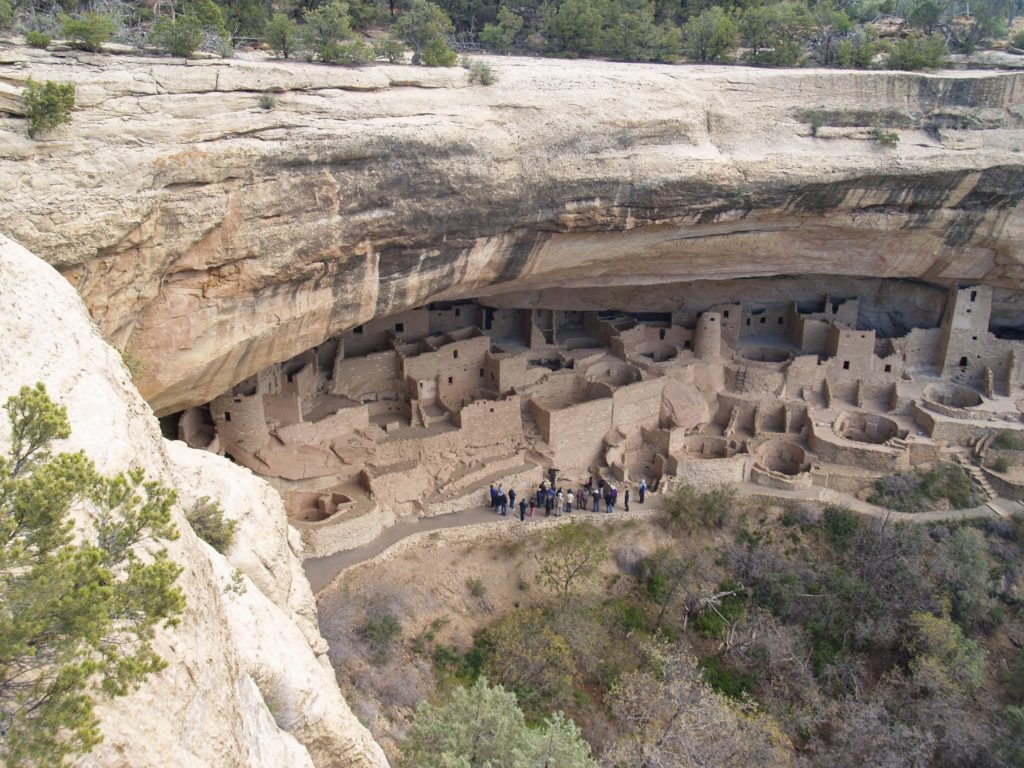The grace that goes before
Jonah 1: Get rid of me and you’ll get rid of the storm.
They make their living on the water but the sailors have never seen a storm like this. This storm, they fearfully conclude, has supernatural power. These sailors have no knowledge of God but when Jonah tells them that the God he serves is the Maker of the sea it scares them to death. Jonah bravely accepts his responsibility in all this and tells them to save themselves by throwing him overboard. These idol worshipping, superstitious, and desperate men won’t do it. One has to wonder why Jonah needs to be “thrown” at all. He can abandon ship with or without their help. However, I’ll leave that for another day, and focus in on these pagan sailors. Even though Jonah tells them that tossing him into the sea will save their lives, they row all the harder, trying to escape the storm. One of John Wesley’s doctrines is called “prevenient grace.” The “pre” part of the word is the clue to its meaning. It might be called “the grace that goes before.” That is, before I ever think of God he’s already working in my life. Human beings are created in God’s image and, even though that image is soiled and stained, it remains. It’s prevenient grace that enables a sinner to show God-like compassion on others. It’s prevenient grace that enables us to respond to God’s love as he offers us a relationship with himself. In this case, we see prevenient grace at work in the lives of these heathen sailors who risk their own lives in an attempt to save a person who confesses that their predicament is his fault.
Take Away: Before we ever think of the Lord he’s already working in our lives.
Tag: grace
Devotional on Jonah
The God of whatever happens
Jonah 3: God…did change his mind about them.
What an interesting statement! God intends to do one thing, but then, in response to what they do, he changes his mind and does something else. This view of God challenges our thinking about who he is and how he works in this world. The Lord’s willing to be influenced by what we say and do. Of course, in this case, this is what he wanted to have happen. Had God only wanted to destroy them we’d have no story of Jonah and the big fish. Instead, we’d have another Sodom and Gomorrah story about fire and brimstone wiping out a sinful city. The reluctant prophet is sent on this mission exactly because God wants their lives to change. This is a classic Old Testament prophet situation. The prophet says, “If you do this, God’s going to do that…if you do that, God’s going to do this.” The Lord’s message to Nineveh is that, because of their sin, destruction is coming. However, even though it’s unspoken, they’re also being given a choice. If sin is bringing destruction, repentance will bring life. When the people of Nineveh make the right choice God is happy to change his mind. This kind of thinking opens up all kinds of possibilities for us. When I pray, asking for God’s intervention in some matter, I’m not just going through a spiritual discipline. Rather, I’m actually being allowed to influence God! My standing in this world is much more than my traveling some predetermined path to some predetermined conclusion. I’m a partner with God who’s allowing me to work with him in changing the world. Here’s a view of a God who’s never at a loss; who always knows what he’ll do in response to what I do of my own free will. Such a view doesn’t make God less. Instead, it makes him more. He’s God whatever happens.
Take Away: As his people we’re partners with the Lord who allows us to work with him in changing the world.
Devotional on Jonah
God’s man isn’t much like God
Jonah 4: Jonah was furious.
The heart of the book of Jonah isn’t the first part with the oft-repeated big fish story. Instead, it’s the last part. It’s here that we find the motor that drives the story. When the reluctant prophet gives in and goes to Nineveh he does so in fear, not that he’ll fail, but that he’ll succeed. Jonah is nationalistic to the core and he’d like nothing better than for the capital city of Israel’s enemy, Assyria, to be destroyed. Still, with all his failings, Jonah knows a thing or two about God. The priests and other religious leaders of his country may promote a doctrine of Israel having a corner on the Almighty, but Jonah understands that God has compassion on all people. Israel may be the chosen people but that means God wants to use them to bless all the nations on earth, not that God loves them and hates all others. When Jonah runs from God, refusing to go to Nineveh he does so because he understands these things. He understands them, but he doesn’t agree with them. Now that his mission to Nineveh is a success Jonah’s angry with the Lord, not only for sparing his enemies when they repent, but for using him to bring it to pass. In spite of his unique understanding of God, Jonah isn’t much like God at all.
Take Away: God is love.
Devotional on Jonah
Why Jonah Runs
Jonah 4: I knew you were sheer grace and mercy.
Jonah runs because he understands what God’s all about and because his heart doesn’t beat with God’s heart. He knows that in spite of the message of condemnation and destruction the Lord gives him to preach that the very reason he’s sent to Nineveh is that God doesn’t want to destroy that city at all. Here are the things Jonah knows about God: his attitude toward lost people is one of grace; he delights in being merciful, he’s not easily angered; and he’s rich in love toward the lost. Jonah also knows that when it comes to judgment God always stands ready to change his mind. Since Jonah knows these things about God and since he’s so out of sync with God, he’d rather be dead than be instrumental in God’s extending mercy to his enemies. Also, Jonah knows that many of his countrymen agree with him. Once people find out that Jonah went to Nineveh to warn them and that he’s instrumental in God’s deciding not to destroy them his life won’t be worth a plug nickel. It’s a miserable thing to be filled with hate and to be used as an instrument of God’s love. I see here that God loves the lost to the point that he’ll do almost anything to reach them. If he has to use a hard-hearted prophet and a big fish to do it, then that’s what he’ll do. If I’m going to be a partner with God in what he’s doing in this world, I’m going to have to allow him to love people with that kind of abandon through me.
Take Away: The Lord loves the lost to the point that he’ll do almost anything to reach them.
Devotional on Nahum

The God of grace
Nahum 1: He recognizes and welcomes anyone looking for help.
Even as the prophet prepares to deliver his sermon of condemnation on the mighty nation of Assyria he can’t help but rejoice in the grace and mercy of God. This same God who declares his judgment on those who reject his claim on their lives has nothing but good news for those who turn to him for help. In fact, the Lord is drawn to such people. I love the fact that even in these portions of the Old Testament that appear to be focused on God as Judge of the World that there are these beautiful word pictures of him as the God of Grace. Nahum declares that “no matter how desperate the trouble” that God is more than willing to “recognize and welcome” all who come to him. In an uncertain world I need such a Savior. I’m reminded in this passage that I don’t have to come to God and convince him that I’m worthy of his help in my life. Instead, I see that he stands ready to extend his mercy to me. In the parable of the prodigal son, the returning son expects to have to make concessions, to take a lowly role if he wants to, once again, have a place in the Father’s household. Instead, the Father runs to him, embraces him, and immediately begins celebrating his return. Hundreds of years before Jesus ever tells this story, Nahum understands this about God, declaring, “He recognizes and welcomes anyone looking for help.”
Take Away: The Lord stands ready to extend his mercy to us.
Devotional on Haggai

Sorting out a passage and finding at its core: grace
Haggai 2: From now on you can count on a blessing.
“Temple fever” is sweeping the nation as governor Zerubbabel and his people give themselves to the rebuilding project. One group that’s especially energized is the priests who’ve served without a Temple. They’re sure things are going to be much better once the Temple is restored. Haggai comes teach them a core spiritual truth and he does so by asking two questions. Question number one has to do with imparted holiness. If meat from a sacrifice is put into some priest’s pocket, it will make his robe holy, but what about other foods then touched by the robe? The priests respond that there’s no ripple effect concerning what other foods the robe might touch. Therefore, those foods remain unholy. The second question concerns the flip side of things. If a person touches a corpse, becoming ceremonially unclean and then touches various foods, do they also become unclean? The answer is “yes” – the “uncleanness” is imparted to whatever that person touches. Haggai then tells them that the sacrifices they’ve been making haven’t been proper because of their spiritual failure. The sin of not rebuilding the Temple has impacted all they’ve done, making them all worthless. Even as a person who touches a corpse makes all they touch unclean, so has their disobedience concerning the rebuilding of the Temple had a negative impact on all their religious practices. The flip side, which I wish Haggai had more clearly stated, is just as disturbing. Just offering proper sacrifices in the rebuilt Temple isn’t going to have the hoped for ripple effect of making the entire nation holy. It’s like the robe touched by the sanctified meat. It’s made holy but that’s as far as it goes. Touching other things with that robe won’t make them also holy. In other words, rebuilding the Temple isn’t a cure-all. Still, the prophet has some wonderful, and educational, news. From the moment they returned to God he began to bless them. His blessings weren’t a result of their making the right kind of sacrifices; in fact, they weren’t the right kind. Rather the blessings were the result of his grace. As I read this especially confusing little passage I come away with a better grasp of this truth: sin has contaminated our entire lives, making us exempt from any hope of self-manufactured holiness. Even when I return to God, my renewed commitment to him will still come up short because of the contamination of sin that has ruled my life. However, I’m not without hope because of God’s grace. He blesses me, not because I’ve managed to restore all that was broken but because he chooses to respond to my surrender to him with wonderful grace.
Take Away: The blessings of the Lord are the result of his grace.
Devotional on Zechariah

God, golf, and grace
Zechariah 10: They’ll get a fresh start, as if nothing had ever happened.
I’m not a golf historian, so I may not have the story right, but I understand that in days of old a golfer who had not had the opportunity to warm up on the driving range was allowed to declare his first shot off the tee to be a “mulligan.” That meant it was going to be a practice shot and wouldn’t count. The “mulligan” morphed into an after-the-fact point of grace, first, for the opening shot only and then to any one tee shot during the round. I’ve even played golf with some folks who took however many “mulligans” they wanted. My response has always been, “You can take as many second shots as you want as long as you don’t brag about your score!” I’m reminded that out in real life we don’t get many mulligans. Once in a while we do, for instance, when the traffic cop lets us off with a warning. However, if my poor driving has resulted in a car wreck the clock can’t be turned back and there’s no mulligan for me. God’s man Zechariah has good news for Israel. The Lord’s going to give them another chance. He’s going to gather this scattered nation from all the places where it’s landed and give it a fresh start. We serve a God who graciously gives nations and individuals second chances. When I confess my sin and failure and return to the Lord, I find that he delights in forgiving me and restoring me to his family. In golf, the mulligan is just an unofficial part of a game. With God, it’s the real deal and it happens only because of his grace.
Take Away: God is the God of Second Chances.
Devotional on Matthew

The Perfect Sermon
Matthew 5: Live generously and graciously toward others, the way God lives toward you.
In one glorious Sermon Jesus sums up the life to which God calls us. In every word we hear pure gold. It’s in retrospect that I realize that this beautiful, perfectly constructed Sermon challenges me at every level of my life. This chapter of the Sermon touches on everything from how to be blessed, to heavy topics like murder, adultery and divorce. Jesus deals with the promises we make and our relationships with our enemies. Obviously, the religion he teaches isn’t merely about “me and God.” Just about every word in this perfect Sermon is about “me and you.” It concerns my relationship with people I like (and maybe like too much according to the section on adultery) and people I don’t like (I’m to settle things with my old enemy quickly before things get even worse). He sums up this first part of the Sermon by teaching me to live “generously and graciously.” Rather than protecting my turf I’m to think the best of people and be generous in my dealings with them. This pretty Sermon has teeth. It’s supposed to work out here in the real world. And, just so I clearly understand the measure of this gracious, generous life style, Jesus tells me that I’m to treat others in the same gracious, generous way God treats me. I need to spend a whole lot of time here at the Sermon on the Mount.
Take Away: The Christian life is as much about “me and you” as it’s about “God and me.”
Devotional on Matthew

The banquet table of God’s grace
Matthew 8: This man is the vanguard of many outsiders who will soon be coming from all directions.
In these early days of our Lord’s public ministry his popularity and reputation soars. He’s not only preaching the greatest message ever heard but he’s also performing miracle after miracle. His name’s on everyone’s lips. In Capernaum a Roman officer comes to ask Jesus to help his servant. This man, a conqueror, impresses us with his humility and his love for his slave. Even more impressive, though, is his faith. When Jesus offers to accompany the Roman to see his slave the Roman suggests that Jesus just give the command, then and there. Jesus is surprised at such a depth of faith from an “outsider.” Later in this same chapter he’ll chastise his Jewish disciples for being afraid in a storm; after all they’re supposed to know more about how God works. This officer, though, surprises Jesus with his simple trust. Not only does Jesus do a “long distance” act of healing, he also comments that this Roman soldier is among the first of what will be a flood of “outsiders” who’ll place their faith in him and be counted among heroes of the faith like Abraham, Isaac, and Jacob. I love this story because it’s about me. You see, that Roman captain might have been one of the first, but I’m one of those who followed his lead. Jesus predicted this and now I’m one of the outsiders who have made their way to that “banquet table of grace.”
Take Away: How blessed to be invited to the banquet table of God’s grace.
Devotional on Matthew

The way to forgiveness
Matthew 12: If Satan banishes Satan is there any Satan left?
It’s really about the Sabbath. The religious leaders have taken “Remember the Sabbath day” and turned it into a heavy burden laid on the backs of the people. Even picking a piece of fruit to eat is considered to be a transgression. Jesus responds with examples from their own law and history proving that they’re wrong. He goes on healing people, even on the Sabbath. When a demon-afflicted woman is set free the critics of Jesus sputter that he must be in cahoots with the devil. Our Lord responds that if they say that about him what do they say about their own exorcists? Beyond that, it’s a silly contention anyway. If Satan casts out Satan there wouldn’t be anything of Satan left. He then deals with the opposite side of the same coin. If the Holy Spirit is the One who forgives sins and we cast the Holy Spirit out of lives, how can we ever expect to be forgiven our sins? Its serious business isn’t it. We’re sinners in need of forgiveness. There’s one who forgives. Throw him out and we’re left without hope. Stated differently, there’s one road to forgiveness, if I refuse to travel that road, there’s no way I can ever arrive at forgiveness. The way to God is abundant and grace-filled, offering hope to the worst sinner. Still, it’s the only way. I can take it or leave it, but if I leave it, I’m left with nothing.
Take Away: We have, in Christ, hope abundant, but aside from Christ we have no hope at all.
Devotional on Matthew

Really, it’s God’s business and not mine
Matthew 20: Can’t I do what I want with my own money?
Jesus tells the story of a man who hires day laborers. Early in the morning he hires a group, promising them a certain wage. As the day goes on, he continues to add workers with some only working the last hour of the day. When the workers are paid, all receive the amount promised the workers who first hired on and have worked all day long. Some of them complain that since they worked longer and harder that they should be paid more. The answer is that they’re being paid exactly what was agreed when they were hired and it’s no business of theirs what the boss does with his own money. This, I think, is a picture of God’s grace to us. I understand that no one is deserving of God’s blessings, but obviously, some are more deserving than others. However, the Lord wants to bless each and every one. At the Judgment there will be some who gave their lives to Jesus while they were young and then served the Lord many years. Others will be there who barely made it in, maybe due to a death bed conversion. The grace of God will be extended to all who were willing to receive it. After all, it’s his grace and he can do with it whatever he wants.
Take Away: The very definition of grace includes the concept that it’s given to the undeserving.
Devotional on Matthew

Letting the Pharisees have it
Matthew 23: They talk a good line, but they don’t live it.
This is the chapter in which Jesus nails the Pharisees. In line after line he pronounces judgment on them. They, who know more about the Laws of the Old Testament than anyone else, have strained all the grace and mercy out of it, leaving only a brittle, unyielding, damning crust. They load people down with all that while stripping away the very essence of God. Rather than pointing the way to a living relationship with a good, loving, and gracious God they point to rules and regulations and assured failure and doom. To say it gently, Jesus thinks these rule-making, burden-loading, grace-denying individuals are bad people. We Christians need to pay careful attention to this. We understand that living in the Lord means that we abstain from some things and pursue others. However, if that approach becomes the dominant one; if keeping all the rules becomes the definition of who we are in God; if we come to believe that “knowing about” God is our primary calling, then we’ve taken a dangerous step toward the religion of the Pharisees. In contrast to that brittle religion our Lord pictures God’s desire for people as being like that of the mother hen who extends her embrace to her chicks. If we lose sight of that and make the “hard side” the main element of our relationship with the Lord we have more in common with the Pharisees than we might want to think.
Take Away: Christianity is more about love and grace and mercy than it is about knowing all the right things and keeping a list of rules.
Devotional on Mark

Struggling faith
Mark 9: Then I believe. Help me with my doubts!
The man is desperate to get help for his son who’s possessed by a demon causing the boy to have dangerous convulsions. He brings him to Jesus, pleading for help. However, Jesus is absent at the time. Some of the disciples, though, have had experience with such things. They’ve been commissioned by Jesus to do exactly what needs to be done. However, in spite of their efforts the condition of the child is unchanged. Just as the father is about to leave Jesus arrives and asks what’s going on. The man explains the need. As the boy is again thrown into a seizure, Jesus asks how long this has been going on and the man answers, adding, “If you can do anything, do it…help us!” Jesus calls the man to faith reminding him that there are no “ifs” in faith. I love the answer of the desperate father. For the sake of his son he’ll banish all the “ifs” and replace them with belief. Then, with transparent honestly, he pleads “Help me with my doubts!” Oh how I identify with this good man. With the hard facts so close at hand he struggles to get a grasp on absolute faith. As he says these words, he has a son trashing about on the ground and, right before him he has Jesus, the Miracle Worker. With every fiber of his being he wants to be doubt free. Apparently, that’s good enough for Jesus. An honest struggle for faith is enough faith for the impossible to happen. As I struggle with the hard realities of life in view of the claims of God’s grace and mercy I’m often like that father. Happily, I’m reminded here that the Lord does, indeed, help us with our doubts. Even a struggling faith has power in God’s eyes.
Take Away: An honest struggle for faith is enough faith for the impossible to happen.
Devotional on Luke

Proximity religion
Luke 13: That’s when you’ll find yourselves out in the cold, strangers to grace.
I find this phrase, “strangers to grace” a chilling one. Jesus says that a lot of people think that because they hang out in the right places and associate themselves with the right people that they have it made. When the curtain of history falls they think they’ll be just fine and they’ll have a place at the table. The trouble is that their level of “knowing” falls far short of the requirement. To know Jesus is vastly superior to knowing about Jesus. His disciples live in a personal relationship with him. They don’t just hang out in the vicinity but, instead, enjoy a spiritual intimacy with our Lord. I can’t think of anything worse than depending on “proximity religion” when a personal, cherished, living relationship is available. It’s only at that level, as I live as a friend of the Lord, that I enjoy being a “friend of grace.”
Take Away: I want to be well acquainted with God’s grace in my life.
Devotional on Acts

Taking care of God’s people
Acts 20: God’s people they are…God himself thought they were worth dying for.
As did Jesus several years earlier, now Paul “sets his face toward Jerusalem” knowing that his arrival there will result in hardship. To speed his journey the Apostle doesn’t go back into Ephesus but, instead, sends word to the church leaders to meet him in Miletus, located about fifty miles south of Ephesus. Here he has an emotional meeting with his dear friends and co-workers. He charges them to guard and protect God’s people in Ephesus, reminding them that “God himself thought they were worth dying for.” Even as this great Apostle is going to go through trials so will this great church. As I study this passage I can’t help but think of the role of the ministry. Paul, I see, isn’t worried about the organization and program of the church. He doesn’t urge the leaders to focus on current worship trends or new technology. Rather, he reminds them that they’re to guard and protect the “sheep” placed under their watch care. They’re to value God’s people as God, himself, values them. Happily, Paul has good news for these leaders of Ephesus and for church leaders across the ages. He tells them that God “can make you into what he wants you to be and give you everything you could possibly need in this community of holy friends.” The work of the ministry includes guarding and protecting God’s people from false teaching. The power for accomplishing that task comes from a gracious God who works in our lives, giving us everything we need to successfully do the work to which we’re called.
Take Away: The Lord not only calls people to spiritual leadership, he also empowers them for that task.
Devotional on Acts

My appeal
Acts 25: I appeal to Caesar
Paul has been confined in Caesarea for two years as Governor Felix ignores his innocence and hopes for some kind of bribe that never comes. It isn’t that Paul is chained in a dungeon; in fact, he’s invited to chat with Felix several times. Then, a new Governor is appointed. Festus is immediately approached by Paul’s enemies who want him moved to Jerusalem, supposedly to stand trial in their courts, but actually that he might be removed from Roman protection and murdered. The new Governor knows the kind of people he’s dealing with and, instead, invites them to come to Caesarea and make their case there. In less than two weeks, Paul finds himself being wildly accused once again, this time before Festus. When this new Governor wavers and asks Paul if he’s willing to face these people (who obviously can’t wait to get their hands on him) he surprises everyone by playing the trump card available to a Roman citizen: he requests that his case be heard by Caesar, himself. This takes the Jews of Jerusalem out of play and places Paul under the scrutiny of the Emperor. In this case, Caesar isn’t an especially nice guy and he certainly isn’t known for his mercy. From Paul’s point of view, though, it’s better to take his chances with Caesar than face certain death from the Jewish leadership. I’m glad today that when I face the accusations of my failure, guilt, and sin that, rather than face the consequences, that I can appeal to a Higher Court. This Court is known for its grace and mercy. This is a place where love and forgiveness abounds. As my life is on the line and my sin moves to condemn me, I appeal to God, not for justice, but for mercy.
Take Away: Its mercy I need from God and its mercy I receive.
Devotional on Romans

Grace extended to both insiders and outsiders
Romans 3: Out of sheer generosity he put us in right standing with himself.
The Jews, Paul says, have a special relationship with God. They’re the writers of Scripture, introducing God to the world. That’s a place of great honor, but it’s no guarantee of salvation. Not only that, but these custodians of God’s Word have, themselves, failed to live according to it. Meanwhile, the outsiders have gone their own way. Ignorant of God’s commands, uninterested in his ways, they too have failed. The result is “that we’re sinners, every one of us, in the same sinking boat with everybody else.” So now what? Those with the inside path to God haven’t followed it and those on the outside haven’t found it. Hope for salvation has to come from, not within, but from outside of humanity. Enter Jesus. Through him the remedy for failure and sin is offered. The Jews need him because they’ve rejected what they knew God wanted. The outsiders need him because they’ve never started down God’s path in the first place. The generous provision of God is his making a way to life for all people, Jews and non-Jews alike. The hope of salvation, then, is in this wonderful expression of God’s grace to a lost human race.
Take Away: For those who know the law but haven’t kept it and for those who never kept it because they never knew it, that is, for all of us, our only hope is God’s grace.
Devotional on Romans

Grace wins
Romans 5: When it’s sin verses grace, grace wins hands down.
Obviously, it all starts with Adam, the first human being. This first man’s failure puts in motion a whole string of failures. Humanity is in a death spiral. One man’s sin results in the sins of many. One man’s sin results in the deaths of many. Without an intervention this story is going to end badly. Then, God’s own Son, Jesus, Son of God and Son of Man, steps into history. Adam’s disobedience brings death. Jesus’ obedience brings life. For humanity it’s a gift beyond understanding. Our sin: our crushing, destroying, death dealing sin seems insurmountable. Now, through Jesus, the remedy is given. Sin, as powerful as it is, meets its match. Grace wins.
Take Away: No matter how great the sin, it meets it match in God’s matchless grace.
Devotional on Romans

You aren’t down for the count
Romans 11: Are they down for the count…the answer is a clear-cut no.
The people of Israel, Paul says, have, in general, messed up royally. They had an inside track to God but rejected him. Because of their disobedience and unbelief they’ve been cut off and are no longer connected to the “root” of God’s love and faithfulness. The Lord, who specializes in taking bad situations and turning them into good ones, has used their rejection as a way to open the door for all peoples of the world to come in. When an “outsider” believes in Jesus that person is grafted into the “vine” of God’s grace. In this the outsider becomes an insider. Now, what of those people of Israel who became dead to God because of their unbelief? Is it too late for them? Is their permanent loss a sad necessity that the way to God be opened for the non-Jews? Paul answers, “No way!” He serves a God of Second Chances and even now the Lord’s working out a restoration for those who’ve been cut off. In his plan it’s never been “Jews verses Gentiles.” The Lord’s working right now to bring salvation to all, grafting in all who will come, making them part of his family. Isn’t this good news! The Gentiles have never known God, but now a way has been made for them to connect to him. The people of Israel have a long history with God but blew it. Still, God works to bring them back home. Maybe you were raised in church and knew the Lord as Savior at one time but now all that’s past tense in your life. I have Good News for you. As it was for the people of Israel who messed up royally there remains hope. Right now the Lord invites you to return and be reattached to the vine of his mercy, love, and grace. Even if everyone else has given up on you, God hasn’t.
Take Away: God is the God of Second Chances.
Devotional on Galations

Rules and regs
Galatians 2: If a living relationship with God could come by rule-keeping, then Christ died unnecessarily.
Years earlier the council at Jerusalem came to a momentous decision. While it was okay for Jewish Christians to continue to observe the Jewish rules and regulations the burden of keeping those rules wouldn’t be placed on the Gentile believers. That was a very big deal, but it wasn’t the end of the subject. Some of the “rule keeping” Jewish Christians refused to accept that decision. Off they went to the Gentile churches to “re-educate” the new Christians. Their brand of Christianity was quite Jewish. Beyond that, even Jewish believers like Peter tended to walk on both sides of the road on this one. Around Jews they were very Jewish, but when they were with non-Jews, they relaxed and conducted themselves as though it is, indeed, faith in Jesus that alone makes a person right with God. Paul and Peter had a bit of a falling out about it when Peter, who had been getting along just fine with the Gentile Christians, quietly withdrew from them when a group of rule keeping Jewish Christians showed up. Clearly, in spite of the fact that there had been an official ruling on the matter, in practice, things were still up in the air. Paul, in this case, doesn’t appeal to the Jerusalem ruling, but, instead goes straight to the cross of Christ. He reminds his readers that if rules did the job, then the Jews, of all people, would be happily satisfied with their situation. He also tells them, that, if that was possible, then Jesus would have never gone to the cross. After all, his message to us isn’t “try harder and you’ll be fine.” Rather, his message is that he is the “way, the truth, and the life.”
Take Away: Even if we somehow managed to keep all the rules we’d still be unsaved outside of Christ.
